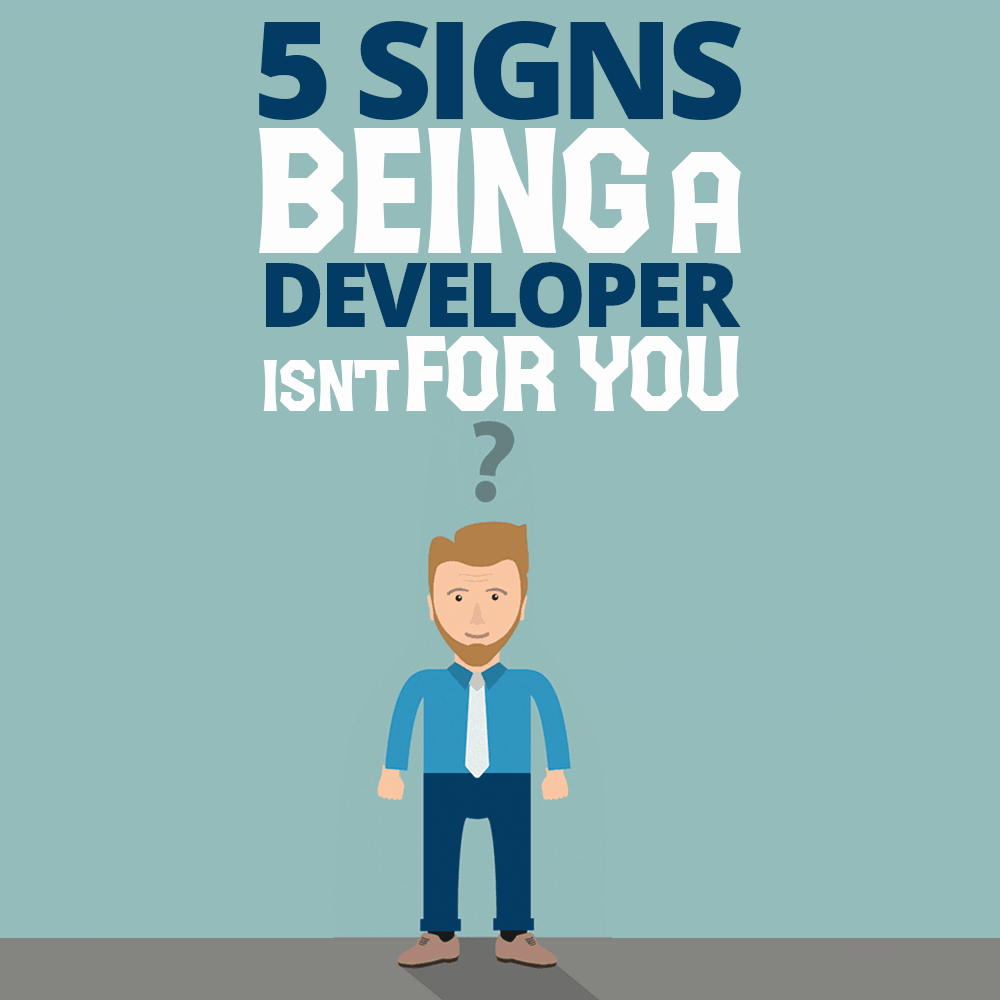
Before you can use that mobile app to browse products and buy from your favorite store, someone has to develop it. Before a retailer or marketer can take advantage of accurate tools to track performance stats and even web activities, someone must build the system. Before manufacturers can roll out nifty, bleeding-edge IIoT systems within their factories, developers must build the software to power it all.
This explains why there’s such a high demand for skilled and reliable developers. None of the experiences, apps, software, or digital environments can exist without software engineers to generate them.
With only 46% of students reporting that their school helped them figure out which careers match their interests and abilities, it’s easy to see how many in our technological age could see developing/programming as a field they should try out. But as important as developers/programmers are, it’s not a suitable career path for everyone.
Want to know if it’s a good match for you? Here are some signs that a career in development just doesn’t fit.
1. You Don’t Enjoy Learning Languages
Programming and development languages are, well, another form of language. Taking courses and working with them is akin to learning Spanish, French, or any other language. The similarities continue in that you’ll be continuing to use the language day-in and day-out while on the job, and your vocabulary will never stop growing.
Furthermore, there is a near-endless supply of new methods, opportunities, and channels at your fingertips so long as your work follows best practices within the industry. That means there’s some room for creativity, but you’ll still need to follow a basic structure.
The experience varies from language to language. You might love some while hating others. It’s OK if you have favorites or hate some of the languages you must use, but if you barely tolerate programming methodology in general, it’s a clear indication you don’t belong in the field.
2. You Can’t (Or Don’t Like To) Self-Teach
As a developer, you might as well be a freelance or contract employee. This is true even when working for some of the largest organizations in existence. Why? Because you’re expected to arrive, on Day One, with a majority of the skills and expertise you need to complete your work. No one is going to hold your hand either. The training for specific jobs and roles is normally not provided.
Of course, there’s always the off-chance the company will offer a short stint of training or free online courses, but this is only common when working with proprietary platforms, systems, or languages.
In the ever-progressing digital world we find ourselves in, it’s not enough to just know the basics. With different technologies emerging every year, developers are expected to be able to incorporate these new technologies in the product they are developing.
Furthermore, the technological nature of programming contributes to the attitude that all developers are super-smart, well-organized, and know exactly what they’re doing—even if the reality is almost always the opposite. You’ll need to be able to manage your own time on the job, further your own education and training, and find solutions for problems as you encounter them.
You’re basically flying solo.
3. You Like the Standard 9-to-5 Schedule
There’s no such thing as “regular working hours” or a “standard schedule” in the development world. Many development projects are notorious for running late, inducing something called “crunch time,” where everyone on the team spends all their waking hours at work. If you’re working with some kind of security or hardware system, you’ll likely be on call, which means your hours will fluctuate.
As a developer it can become easy to let at-home obligations and events tend to take a backseat, so expect to have to schedule and plan to show up at your child’s school plays, as finding a work/life balance can be difficult.
4. You Hate Plans

Most development projects involve working with a large team of like-minded and collaborative people who each have their own role to play in the grand scheme. One developer might be working on an app’s UI and visual elements while another might be working on network interactions, and so on. These disparate parts often come together as one to comprise the final app or software product.
To make this work, you need a great deal of planning and coordination at the management level, which means you’ll constantly be minding and adapting to oversight.
If you hate planning or conforming to a plan or strategy set by higher-ups, take a moment and reconsider. If you hate collaborating with large teams and having access only to a smaller piece of the full puzzle, this isn’t the path for you.
5. You Aren’t Left- and Right-Brained
Programming and development is a remarkably technical career with a lot of analytical and mathematical considerations. Because of this, it’s easy to go in thinking there’s almost no creativity involved. But that’s not true at all.
Although development can tend to be a left-brain-oriented activity, there’s still a very large right-brain requirement for coding and programming. In other words, you will need to be creative and come up with unique solutions and answers to problems you encounter.
Furthermore, there’s a certain finesse to writing code and putting together the fundamentals of software. So-called “messy” coding or writing can break a project entirely, especially when someone else has to come in and read or understand what you’ve produced. It’s like trying to make sense of someone’s hand-written essay when they have terrible or ugly handwriting you can’t read. This experience translates even on-screen, where most of the content is typed and produced via physical keyboards.
Is Software Development for You?
The considerations above will help you decide whether or not software development is right for you, but there are plenty of other elements you’ll need to think about, too.
Do you like being around geeky people—or, more specifically, fellow developers? Do you take personal pride in your work, and do you have a solid work ethic? Are you able to work on a team, and do you meet deadlines so everyone else can stay on schedule, too? Are you easily frustrated, or do you give up challenges easy?
If the traits mentioned above apply to you, maybe it’s time to find another field. If none of the aforementioned traits apply to you, then it sounds like you would do well in a software development field. Good luck!
